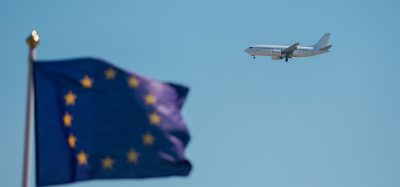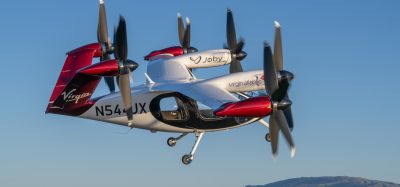Aviation supports 26.8 million APEC jobs
- Like
- Digg
- Del
- Tumblr
- VKontakte
- Buffer
- Love This
- Odnoklassniki
- Meneame
- Blogger
- Amazon
- Yahoo Mail
- Gmail
- AOL
- Newsvine
- HackerNews
- Evernote
- MySpace
- Mail.ru
- Viadeo
- Line
- Comments
- Yummly
- SMS
- Viber
- Telegram
- Subscribe
- Skype
- Facebook Messenger
- Kakao
- LiveJournal
- Yammer
- Edgar
- Fintel
- Mix
- Instapaper
- Copy Link
Posted: 4 September 2013 | ATAG | No comments yet
As Ministers of Transport from across the APEC region gather in Tokyo, a new report has been released looking at the role aviation plays in the APEC region…


As Ministers of Transport from across the APEC region gather in Tokyo, a new report has been released by the cross-industry aviation organisation the Air Transport Action Group (ATAG), looking at the role aviation plays in the APEC region. The report, Aviation: Benefits Beyond Borders APEC, reveals that aviation supports some 26.8 million jobs and $1.1 trillion in GDP across the 21 APEC economies.
ATAG Executive Director, Paul Steele, says: “The breadth and importance of air transport to economies in APEC is impressive. The fact that, ranked by GDP, the region’s air transport industry would be the fifth largest APEC economy shows how large the industry is. But more important than the size of aviation is the important role it plays in transporting passengers and goods across the region. Aviation drives high-value trade and is a vital player in the region’s tourism industry.”
Globally, air transport facilitates around 35% of the value of world trade and in APEC, it handled 23.2 million tonnes of high-value trade in 2010. The report estimates that, by 2030, air transport will support up to 45 million jobs and $3.2 trillion in GDP, but also cautions that if growth were to be just one percent lower each year, the impact could be up to eight million jobs not created.
Steele comments, “Aviation is a great facilitator and catalyst for economic growth, but it needs to be growth in a sustainable and systematic way. We must ensure that the industry and governments work together to build the needed infrastructure to facilitate this growth. But any new infrastructure must fit in to a broader strategic plan. I am glad to say that the industry and governments are working through APEC on some of these issues and this cooperation should be broadened wherever possible.”
Aviation: Benefits Beyond Borders APEC also provides an overview of the scope of air transport across the APEC economies. Airlines in the region carried 1.4 billion passengers in 2010. There are 857 commercial airports, 1,344 airlines, 21 air traffic control organisations and 16,782 aircraft that make up the APEC air transport system.
The meeting of the APEC transport ministers comes at a key time when governments are preparing to meet in Montreal at the UN’s International Civil Aviation Organization (ICAO) for the 38th triennial ICAO Assembly, beginning at the end of September. The aviation industry has been urging governments to make progress on the issue of aviation and climate change and in particular on the development of a single global market-based measure for aviation emissions to complement efforts on technology, operations and infrastructure improvements.
“We would like to send a strong message to the APEC Transport Ministers and their colleagues in governments around the world to provide leadership on climate change and how any global policy response might impact aviation. As an industry, we have provided our suggestion of an approach we think is the most practical and easy to implement. It is now up to governments to set in place the way forward,” says Paul Steele.
“The report we have released today allows us to explore the important role that aviation plays across the APEC region – and the world – on a daily basis. Our industry is committed to a sustainable future for air transport and providing all the benefits that aviation brings for global economies. What we are hoping to achieve at ICAO is a key building block of that sustainable future and we urge all governments, including the APEC Ministers meeting in Tokyo, to support this global effort.”

















